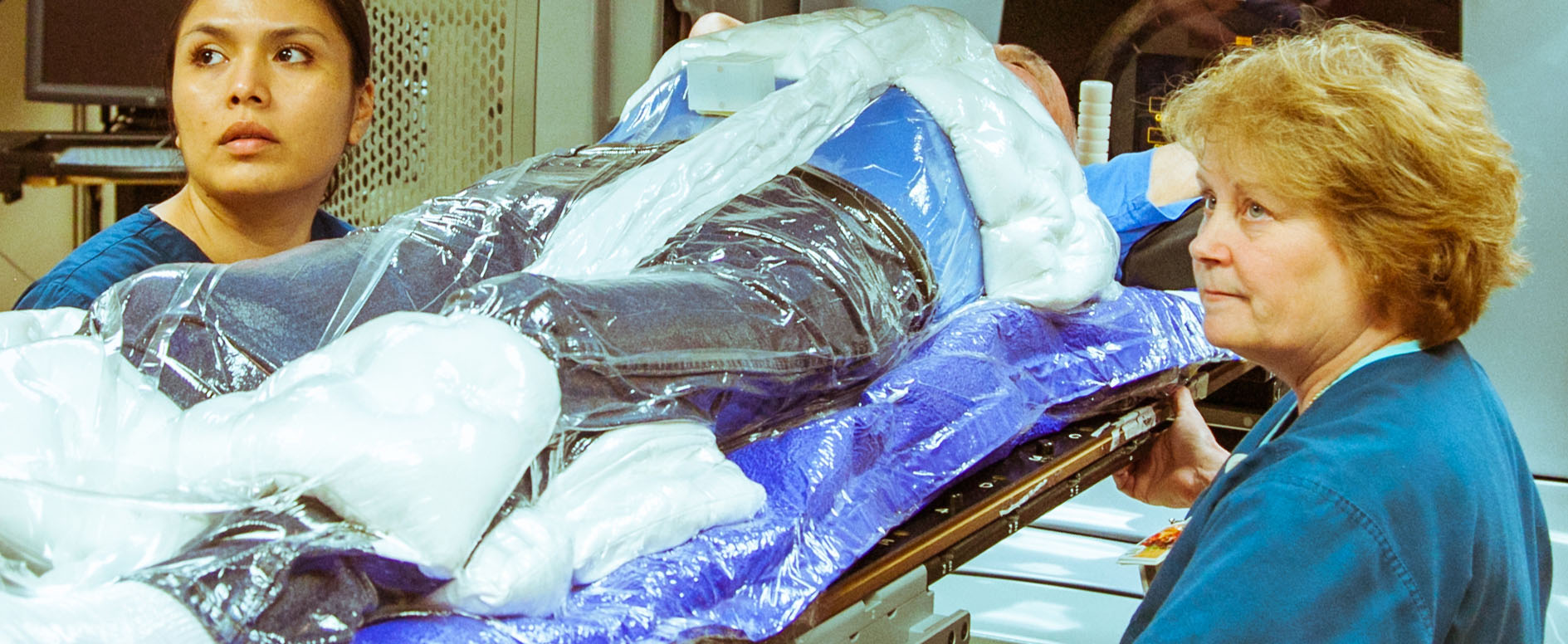
Once a diagnosis of cancer has been made, you will probably talk with your primary care physician along with several cancer specialists, such as a surgeon, a medical oncologist and a radiation oncologist. You will want to ask these doctors about all your treatment options.
In many cases, your cancer will need to be treated by using more than one type of treatment. If you have lung cancer, you might have surgery to remove the tumor (by a thoracic surgeon), then have radiation therapy to destroy any remaining cancer cells in or near your lung (by a radiation oncologist). Sometimes radiation is used on its own or together with chemotherapy (given by a medical oncologist) to destroy cancer cells that may have traveled to other parts of the body and to make the radiation therapy even more effective. For very small tumors that do not involve the lymph nodes, higher doses of radiation in very few treatments are used to treat cancer within the lungs. This type of treatment is called stereotactic body radiation therapy (SBRT) or stereotactic ablative body therapy (SABR).
After reviewing your medical record including imaging, as well as completing a thorough patient history and physical examination, your radiation oncologist will discuss with you the potential benefits and risks of radiation therapy and answer your questions. View a list of Questions to Ask Your Doctor.






